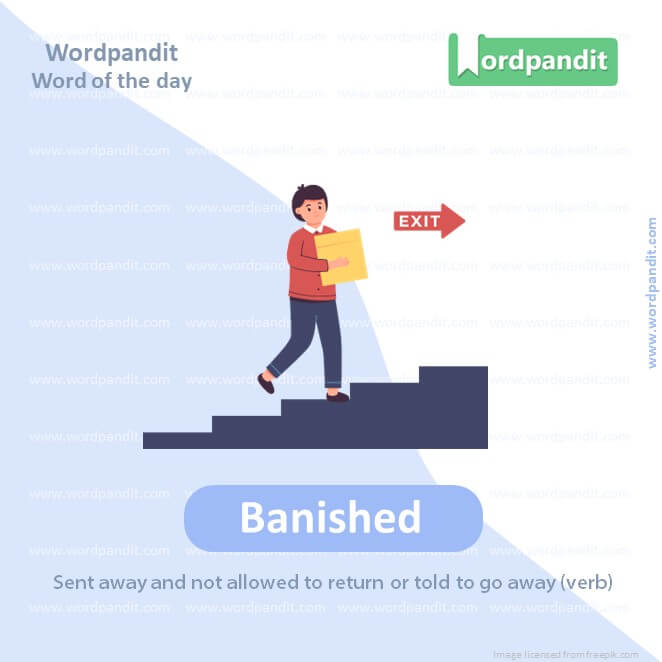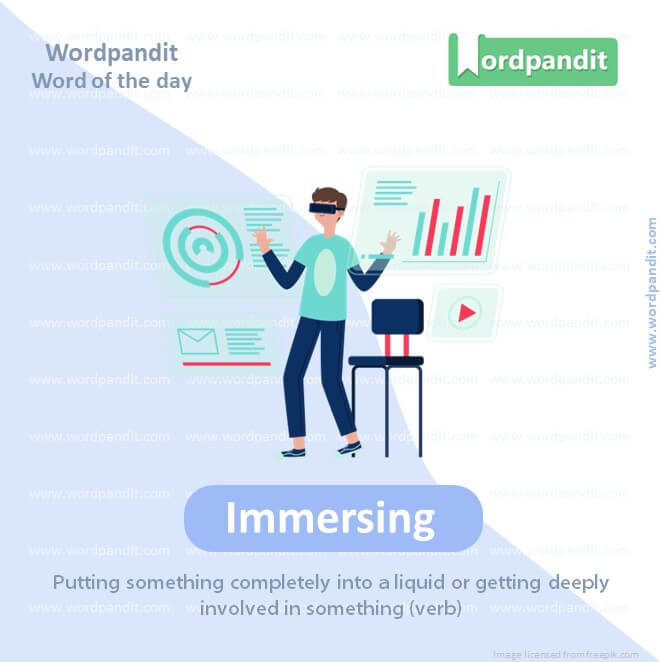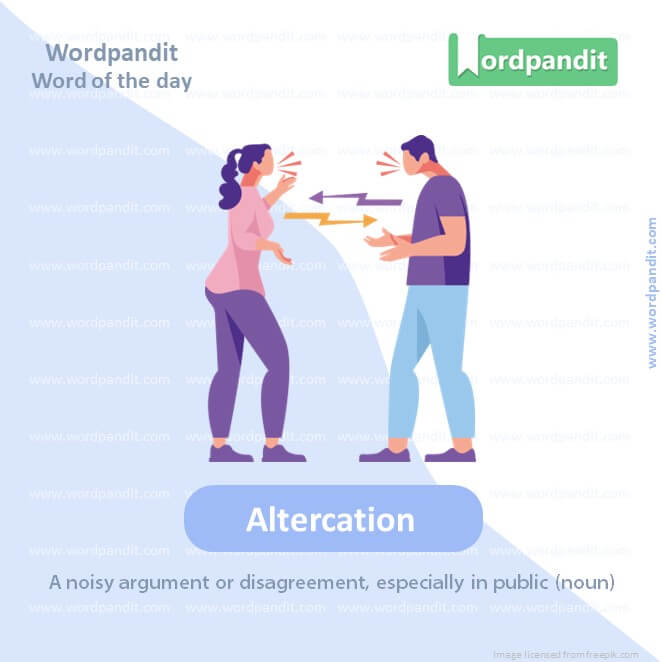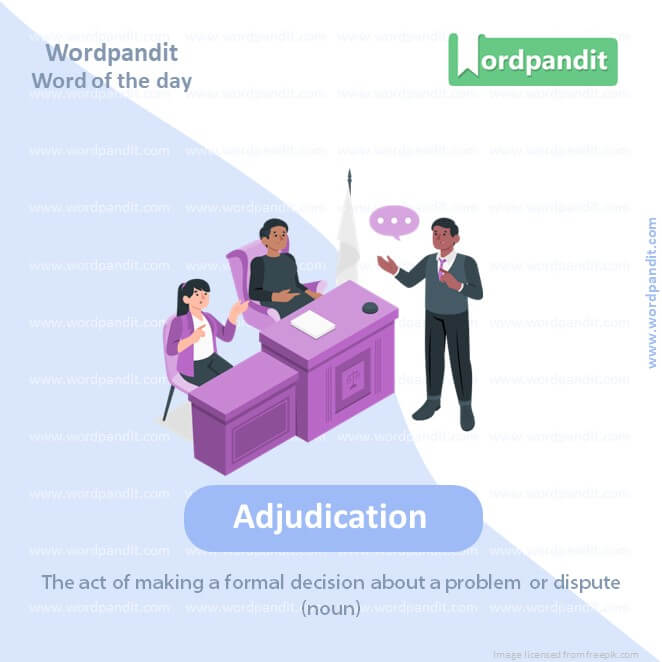Daily Vocabulary Words: List of Daily Used Words in Leading Indian Newspapers
Hi there. Welcome to this special section @ Wordpandit. Our endeavour here is straightforward: highlighting daily vocabulary words that you would come across in leading newspapers in the country. We have included the following newspapers in our selection:
• The Times of India
• The Economic Times
• Hindustan Times
• Mint
• Indian Express
We are putting in extensive work to develop your vocabulary. All you have to do is be regular with this section and check out this post daily. This is your repository of commonly used words; essentially, we are posting a list of daily used words. Hence, this has significant practical application as it teaches you words that are commonly used in leading publications mentioned above.
Visit the website daily to learn words from leading Indian newspapers.

WORD-1: Banished
CONTEXT: which had banished him from politics six years ago and now facilitated his recent resurrection
SOURCE: Indian Express
EXPLANATORY PARAGRAPH: Imagine you have a toy that you’re not allowed to play with anymore, so your mom puts it away where you can’t see or use it. That toy has been “banished”. It means it’s been sent away or told to go away.
MEANING: Sent away and not allowed to return or told to go away (verb).
PRONUNCIATION: BAN-ish-d
SYNONYMS: Expelled, Ousted, Exiled, Ejected, Dismissed, Barred, Evicted
USAGE EXAMPLES:
1. The knight was banished from the kingdom.
2. If you keep making noise, you’ll be banished from the library.
3. The wizard banished the evil spirit.
4. Many fairy tales have characters who are banished to far-off lands.

WORD-2: Immersing
CONTEXT: All I focused on was immersing myself in this girl.
SOURCE: Hindustan Times
EXPLANATORY PARAGRAPH: Imagine you have a toy boat and you put it all the way into the water. Now, the boat is completely covered in water. That means you’re “immersing” the boat in the water.
MEANING: Putting something completely into a liquid or getting deeply involved in something (verb).
PRONUNCIATION: im-MUR-sing
SYNONYMS: Dipping, Submerging, Engulfing, Plunging, Sinking, Soaking, Drenching
USAGE EXAMPLES:
1. She was immersing the cloth in dye to change its color.
2. Immersing himself in the book, he forgot about time.
3. The chef recommended immersing the vegetables in cold water after boiling.
4. By immersing in a new culture, you can learn a lot.

WORD-3: Countermobilisation
CONTEXT: because of the influence of the state’s significant diaspora in West Asia and second, because of what some observers say a countermobilisation to right-wing Hindu politics at home.
SOURCE: Times of India
EXPLANATORY PARAGRAPH: Imagine your friend gathers a group to play tag, and you gather another group to play hide and seek. You’re creating a “countermobilisation” because you’re getting a group together to do something different or opposite.
MEANING: The action of organizing in opposition to a certain activity or group (noun).
PRONUNCIATION: counter-mo-bi-li-ZAY-shun
SYNONYMS: Counteraction, Opposition, Response, Resistance, Pushback, Countermove, Rebuttal
USAGE EXAMPLES:
1. The town saw a countermobilisation against the proposed law.
2. They started a countermobilisation campaign to spread their message.
3. Countermobilisation efforts stopped the project from happening.
4. The rally was met with a swift countermobilisation from the community.

WORD-4: Altercation
CONTEXT: term conclude without a fatal altercation with Pakistan’s military leaders.
SOURCE: Indian Express
EXPLANATORY PARAGRAPH: Have you ever seen two people arguing loudly or almost ready to fight? That’s called an “altercation”. It’s when people have a strong disagreement and it shows.
MEANING: A noisy argument or disagreement, especially in public (noun).
PRONUNCIATION: all-ter-KAY-shun
SYNONYMS: Dispute, Quarrel, Squabble, Brawl, Row, Tiff, Clash
USAGE EXAMPLES:
1. There was an altercation between two drivers in the parking lot.
2. The coach wanted to avoid any altercation with the referee.
3. Their altercation was loud enough for the entire office to hear.
4. Altercations in public places often attract a lot of attention.

WORD-5: Adjudication
CONTEXT: the court had pulled up Speaker Rahul Narwekar for delaying the adjudication of the disqualification petitions.
SOURCE: Hindustan Times
EXPLANATORY PARAGRAPH: Imagine there’s a game where two players can’t decide who won. So, they go to a referee or a judge to help decide. That decision-making by the judge is called “adjudication”.
MEANING: The act of making a formal decision about a problem or dispute (noun).
PRONUNCIATION: ad-joo-di-KAY-shun
SYNONYMS: Judgment, Verdict, Decision, Resolution, Determination, Arbitration, Ruling
USAGE EXAMPLES:
1. The adjudication of the case took longer than expected.
2. After the competition, everyone awaited the adjudication.
3. Adjudication in such matters requires careful consideration.
4. She won the case after the adjudication favored her arguments.
WORD-6: Consensus
CONTEXT: The US commitment to the region is waning and the domestic political consensus about staying the course is gone.
SOURCE: Times of India
EXPLANATORY PARAGRAPH: When you and your friends decide on one game to play, after everyone agrees, that’s a “consensus”. It’s like everyone saying “yes” to the same thing.
MEANING: General agreement or shared opinion among a group of people (noun).
PRONUNCIATION: con-SEN-sus
SYNONYMS: Agreement, Accord, Unity, Harmony, Unanimity, Conformity, Solidarity
USAGE EXAMPLES:
1. The team reached a consensus on the project’s next steps.
2. It’s difficult to get a consensus with so many differing opinions.
3. The community sought consensus before making a decision.
4. After hours of discussion, a consensus was finally achieved.
WORD-7: Acquiescence
CONTEXT: Sharif has tried before and will probably try again to improve ties with India, this time with the generals’ acquiescence
SOURCE: Indian Express
EXPLANATORY PARAGRAPH: Imagine you want to play a game and your friend suggests another game. You don’t really want to play your friend’s game but say “okay” anyway to keep them happy. That “okay” is called “acquiescence”. It’s when you accept or agree to something without protesting.
MEANING: The act of accepting or agreeing to something, often without protest (noun).
PRONUNCIATION: ack-wee-ES-sense
SYNONYMS: Consent, Compliance, Agreement, Concession, Submission, Yielding, Assent
USAGE EXAMPLES:
1. His acquiescence surprised everyone.
2. The proposal was accepted with general acquiescence.
3. She nodded in acquiescence to his request.
4. The contract was signed after much discussion and eventual acquiescence.
WORD-8: Narcissistic
CONTEXT: Sharif would be a safer pair of hands than the narcissistic cricketer-turned-politician
SOURCE: Indian Express
EXPLANATORY PARAGRAPH: Have you ever seen someone who thinks they’re the most important person and always looks in the mirror, admiring themselves? That’s called being “narcissistic”. It’s when someone thinks very highly of themselves, maybe too much.
MEANING: Having too much interest in and admiration for oneself (adjective).
PRONUNCIATION: nar-si-SIS-tik
SYNONYMS: Self-centered, Conceited, Vain, Self-absorbed, Egotistic, Self-loving, Self-obsessed
USAGE EXAMPLES:
1. He had a narcissistic tendency to talk about himself all the time.
2. Some celebrities are often accused of being narcissistic.
3. Her narcissistic behavior alienated many of her friends.
4. The character in the play was a classic representation of a narcissistic individual.
WORD-9: Enlightenment
CONTEXT: true spiritual enlightenment can only be attained through selfless humility, renouncing the ego, and embracing a life of service and devotion.
SOURCE: Times of India
EXPLANATORY PARAGRAPH: Imagine you’re in a dark room and someone turns on a light, letting you see everything clearly. “Enlightenment” is like turning on that light, but for your mind. It means understanding or learning something new and clear.
MEANING: A situation in which you have more knowledge or understanding, often related to spiritual knowledge (noun).
PRONUNCIATION: en-LIGHT-en-ment
SYNONYMS: Awareness, Insight, Realization, Illumination, Understanding, Wisdom, Clarity
USAGE EXAMPLES:
1. The lecture gave me a moment of enlightenment.
2. Many people seek enlightenment through meditation.
3. The book offers a path to spiritual enlightenment.
4. His travels led to his own personal enlightenment about different cultures.
WORD-10: Embraced
CONTEXT: Sri Chand was moved to tears and warmly embraced him.
SOURCE: Times of India
EXPLANATORY PARAGRAPH: When you give someone a big hug, you’re “embracing” them. But it can also mean when you really like an idea or a thing and accept it happily.
MEANING:
1. Hugged or held tightly (verb).
2. Accepted or supported willingly and enthusiastically (verb).
PRONUNCIATION: em-BRAYST
SYNONYMS: Hugged, Enclosed, Clasped, Enfolded, Accepted, Welcomed, Adopted
USAGE EXAMPLES:
1. She embraced her friend after a long time apart.
2. The community embraced the new policy with enthusiasm.
3. The company embraced the latest technology to improve its products.
4. He embraced the challenge and exceeded all expectations.
Vocabulary Daily Words
Among the myriad aspects of language learning, the role of ‘vocabulary daily words’ attests to their undeniable importance. These everyday words form the bedrock of communication. Whether used in casual chat or formal discussion, the fluency and understanding of ‘vocabulary daily words’ can significantly uplift the quality of interaction. However, the vital question is, how to effectively learn these ‘vocabulary daily words’?
The crux of learning ‘vocabulary daily words’ lies in a well-rounded approach that encompasses exposure, understanding, memorization, and practice. Rote memorization might seem like a quick solution, but it lacks context and, thereby, retention. Hence, opt for a diverse range of resources like books, newspapers, podcasts, and digital media. These will bring ‘vocabulary daily words’ to life, providing real-life usage examples and making the learning process inherently engaging.
Next, using memory-enhancing techniques can significantly improve retention of ‘vocabulary daily words’. Techniques such as flashcards or the Leitner System align with the principles of spaced repetition, allowing more effective and long-term learning. Incorporating mnemonic devices, associating new words with unique stories or images, can further facilitate this learning process.
The key to fully grasping ‘vocabulary daily words’ lies in practical usage. Make it a habit to use these words in your daily communications. Whether it’s a friendly conversation, a professional email, or a social media post, try integrating these new words. Doing so provides hands-on practice, strengthening your comprehension and application of these words.
In a nutshell, ‘vocabulary daily words’ are a treasure in the language learning landscape. By harnessing diversified resources, utilizing memory techniques, and actively using these words, your grip on the ‘vocabulary daily words’ will strengthen significantly. So, turn the pages, hit play, start a conversation, and let these ‘vocabulary daily words’ shape the story of your linguistic journey.













